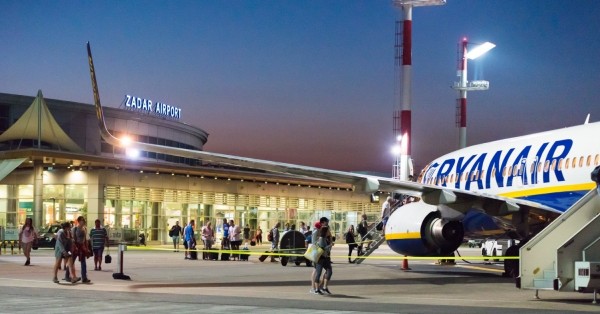NextGen 5G Airports: Hrvatski Telekom’s Private 5G Plan for Croatia
Airports are under constant pressure to handle growing passenger traffic while keeping operations smooth and secure. Hrvatski Telekom is stepping up with a robust plan: the NextGen 5G Airports project. This initiative will deliver Private 5G Networks to three key Croatian airports—Zagreb, Zadar, and Pula—making them smarter, safer, and future-ready.
Why Airports Need Private 5G Networks and AI
Airports function like small cities, with thousands of moving parts, from passenger check-in to runway security. Any system lag, outdated inspection method, or poor connectivity can cause delays or safety risks. Relying on conventional Wi-Fi or public networks is no longer sustainable for real-time operations, AI analytics, or autonomous technologies. Airports need dedicated, high-speed, secure networks that can support modern demands without compromise.
Hrvatski Telekom’s Private 5G Solution for Airports
The answer is a robust 5G standalone network designed exclusively for each airport. Hrvatski Telekom’s solution goes beyond basic wireless coverage. It creates a controlled environment where data moves swiftly, devices communicate instantly, and security is airtight. This ensures that drones, smart cameras, and AI-powered tools can run simultaneously without conflicts or downtime. Thanks to the European Union’s Connecting Europe Facility (CEF) programme, airports get three years of free access to this Private 5G Network, eliminating initial investment barriers.
Real-World Use Cases: Zagreb, Pula, and Zadar Airports
Here’s how each airport benefits in practice:
- Zagreb Airport: A drone will autonomously scan the massive runway and perimeter, using AI to flag anomalies on the spot. Technicians can act immediately, boosting runway uptime and safety.
- Pula Airport: Fifty high-resolution cameras, supported by smart sensors, will secure the perimeter around the clock. Breaches or damage can be detected and addressed in minutes instead of hours.
- Zadar Airport: Field teams will switch from outdated radio reporting to rugged AI tablets that digitize inspection data instantly. This reduces paperwork and speeds up decision-making.
Each use case proves that Private 5G Networks aren’t just about connectivity—they’re about transforming daily workflows.
Key Technologies: 5G, Edge Computing, and AI Integration
This project combines several powerful technologies:
- 5G Standalone (5G SA): Provides a dedicated, low-latency network with guaranteed speeds and coverage.
- Edge Computing: Enables quick data crunching near the source, which is vital for drone video streams or real-time threat detection.
- Artificial Intelligence: Automates inspection tasks, analyzes huge datasets on the fly, and suggests maintenance actions.
- IoT: Connects all sensors and devices into a smart ecosystem for real-time awareness.
Benefits of Private 5G and Edge Computing in Aviation
Deploying this blend of tech brings multiple wins:
- More robust security through smart monitoring.
- Faster maintenance, reducing operational downtime.
- Cost savings by optimizing staff time and resource use.
- Future-proof foundation for integrating autonomous vehicles and drones.
- Better passenger experiences, as airports can redirect focus to core services.
How Private 5G Networks Impact Critical Infrastructure
Beyond aviation, this sets a model for how Private 5G Networks and Edge Computing can modernize critical infrastructure like ports, smart cities, and logistics hubs. It also aligns with the EU’s goal of deploying secure, high-speed digital services in transport, healthcare, education, and agriculture.
Hrvatski Telekom’s Role in Deploying Private 5G Airports
Hrvatski Telekom is the driving force behind the network design, deployment, and operations. Their vision goes beyond connectivity—they’re offering a toolkit for airports to rethink how they manage inspections, security, and infrastructure maintenance.
Key Partners Supporting the Private 5G Airport Project
Key partners bring additional strengths:
- Markoja: Integrates 5G with AI, Edge, and IoT to ensure the network meets aviation-grade standards.
- Faculty of Transport and Traffic Sciences: Provides academic expertise to align tech deployment with European aviation norms.
- HAKOM: The Croatian regulator offers flexible spectrum allocation, enabling airports to run secure, localized networks without red tape.
Project Status and Funding for NextGen 5G Airports
The project awaits funding approval under the CEF Digital initiative. Stakeholders remain optimistic, with planning already in motion for equipment procurement, staff training, and pilot testing at all three airports.
Key milestones:
- 2025: Funding green light and network infrastructure installation begins.
- 2026: Initial drone and camera trials at Zagreb and Pula; Zadar shifts inspections to AI tablets.
- 2027: Full network optimization, staff upskilling, and cross-airport system integration.
- 2028: Review of outcomes, potential expansion to other transport nodes.
Stakeholder Endorsements for Croatia’s 5G Airports
The project has earned praise from government bodies, academia, and aviation experts alike. From HAKOM’s regulatory flexibility to Markoja’s integration capabilities, all partners echo the same message: Private 5G Networks are the smart route to future-ready airports.
The Future of Aviation Connectivity in Croatia
Hrvatski Telekom’s vision for NextGen 5G Airports isn’t just about technology upgrades. It’s about building a safer, more efficient, and smarter aviation ecosystem for Croatia and setting an example for the wider region.


























